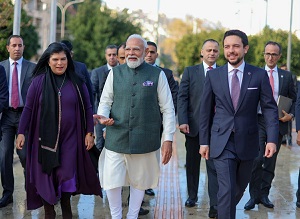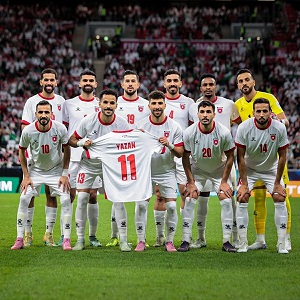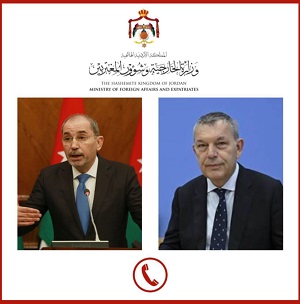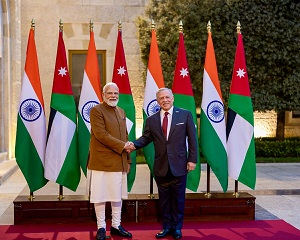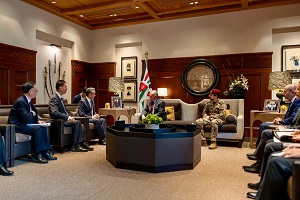Syria: Small Wars, Big Battles - By Ibrahim Hamidi, Asharq Al-Awsat
Can “small wars” in the near or immediate future shake the stalemate in Syria? What are the priorities of acting states in the Syrian file? Where do the concerns of Syrians lie within their war-torn country and the three micro-states existing there? How are Syrians dealing with the “big battles” that have to do with living conditions?
Millions of Syrians turned their attention to the diplomatic confrontation in the UN Security Council in New York between the West and Russia.
World powers are in dispute over the extension of the international resolution to deliver aid across the Turkish border and “contact lines” inside Syria, with the current resolution’s mandate coming to an end tomorrow.
Moscow wants to renew the mandate for a period of six months instead of a whole year. It wants to drag Western countries to negotiations twice a year for many reasons, including the Ukraine war.
Russia also is looking to change the language of the international resolution and add electricity financing to “early recovery” projects. By this, it hopes to bring the world closer to contributing to the Syrian reconstruction file, a matter on which Western countries impose political conditions.
Moreover, Russia is trying to increase aid delivery through Syria to push for expanding relations with Damascus.
Other proposals include deleting any reference to the International Committee of the Red Cross and its efforts. This comes with the intention to “punish” the relief organization for several positions, including its support for an international plan to establish an international mechanism to follow up on the file of missing persons in Syria.
Raids and Tests
Russia has at least three times bombed positions near US forces at Al-Tanf base, southeast Syria, and elsewhere.
Moscow did not give Washington's army sufficient time under the MoU they signed in 2017 for preventing conflict between them.
Clearly, this will be repeated frequently with Ukraine entering a Western-Russian “war of attrition.”
Such a situation raises worry about pivotal military frictions between the major powers in Syria.
New Lines
For the first time, Israel bombed areas south of Tartus, near the Russian base and north of the Lebanese border. Israel said that its targeting had hit military assets for Hezbollah.
Before that, Tel Aviv bombed Damascus International Airport and put it out of business for days.
Russia has partially restricted Israel's movement in Syria, due to Tel Aviv's position on the Ukraine war.
Multiple military friction may occur in Syria (or Lebanon), if the overt war in Ukraine and the “shadow war” in Iran escalate.
Turkish Incursions
Turkish President Recep Tayyip Erdogan is relying on his improved negotiating position after the Ukraine war, to brandish the “largest” military operation in northern Syria.
However, Erdogan’s threats were met with US rejection and warnings against destabilizing present contact lines in Syria. Also, Turkish plans were met with Russian mediation. Indeed, Moscow intensified its overt and secret contacts between Damascus and Ankara to “abort the military operation.”
Even Iran had its foreign minister perform shuttle diplomacy between Damascus and Ankara, but the last word was for Russia. The Turkish military operation has been frozen, but Erdogan's intentions are present and open the door to a possible escalation, and a minor war.
Safe Zone
Jordan talked years ago about a “safe zone” north of its border in southern Syria.
The plan was not implemented, as Russia assigned a military role to provide stability in the governorates of Daraa, Quneitra and As-Suwayda.
A few months ago, Oman initiated normalization with Damascus, proposing a “step for step” approach.
Reports indicate a Jordanian complaint about the flow of drugs and smuggling across the border, and the escalation of assassinations and chaos in the countryside of southern Syria.
What is new is that Amman has warned of a possible escalation and has threatened to re-introduce the “safe zone” plan to put pressure on Damascus and motivate Moscow to move.
This coincided with a qualitative US arming of opposition factions residing at the Al-Tanf base near borders with Jordan.
Arab Normalization of Ties with Damascus
Bilateral normalization steps between Arab capitals and Damascus continue at a slow pace.
There are those who are linking the normalization of ties with the amnesty issued by President Bashar al-Assad for those accused of “terror crimes.”
Despite the measured normalization of ties with Damascus, there still is no consensus on its return to the Arab League at the Algiers Summit next November.
What's new? There is an Algerian proposal for Syrian Foreign Minister Faisal Miqdad to come to Algeria for bilateral talks in conjunction with the summit, or to invite Syria with Turkey and others as an “observer.”
However, Algeria’s proposals remain tied to developments and wars in the months preceding the summit.
Economic War
Nothing new can be mentioned about the economic crisis in Syria and the struggles people are facing to live there. The crisis is exacerbated by hiking poverty rates and the lack of root solutions.
Iranian oil tankers had arrived in the war-torn country, and part of a power station in Aleppo resumed operations.
There is also a resumption of talks about an Arab gas pipeline.
Nevertheless, there is a spike in young people and artisans migrating abroad and regime loyalists complaining that conditions in their strongholds have not improved.
What is also worth mentioning is the huge gap between “war profiteers” and “victims of war” in Syria.
There is no doubt that change will happen sooner or later at one point or another.
A “minor war” will evolve in one arena or another and victories and defeats will be measured against each other.
The “battle for living” has settled on collapses and equations that need years to be resolved and dismantled.
It will take years of steps and understandings to get Syria out of a “long dark night.”
